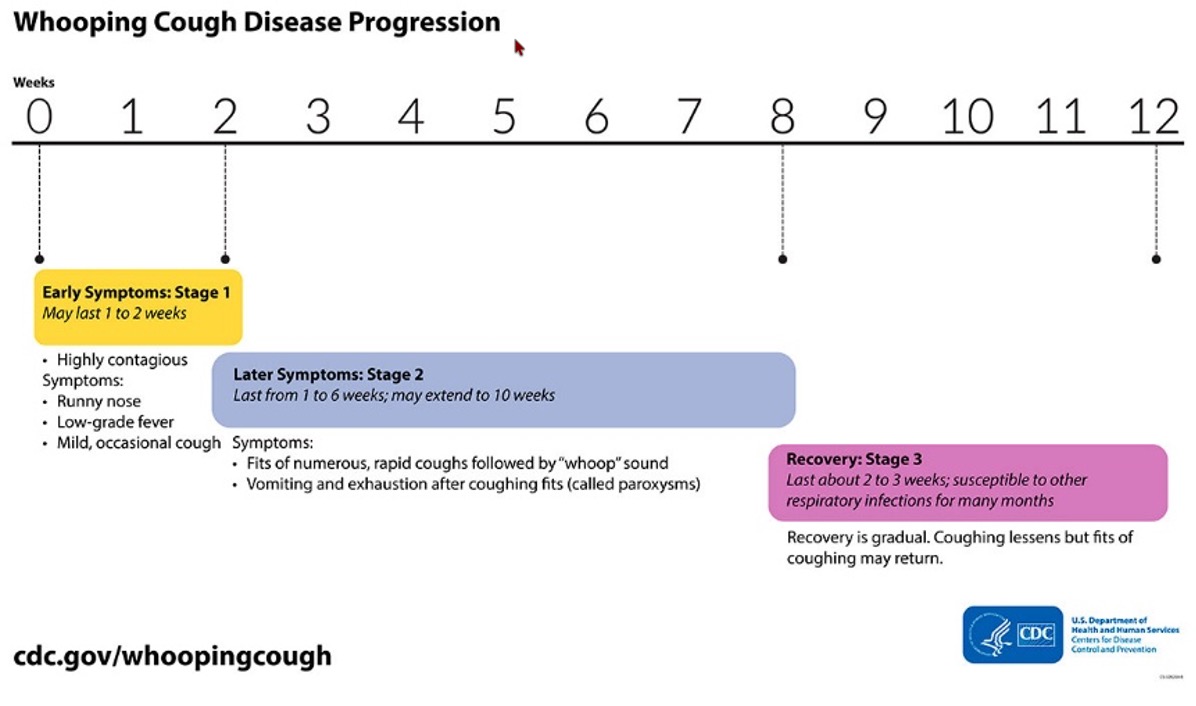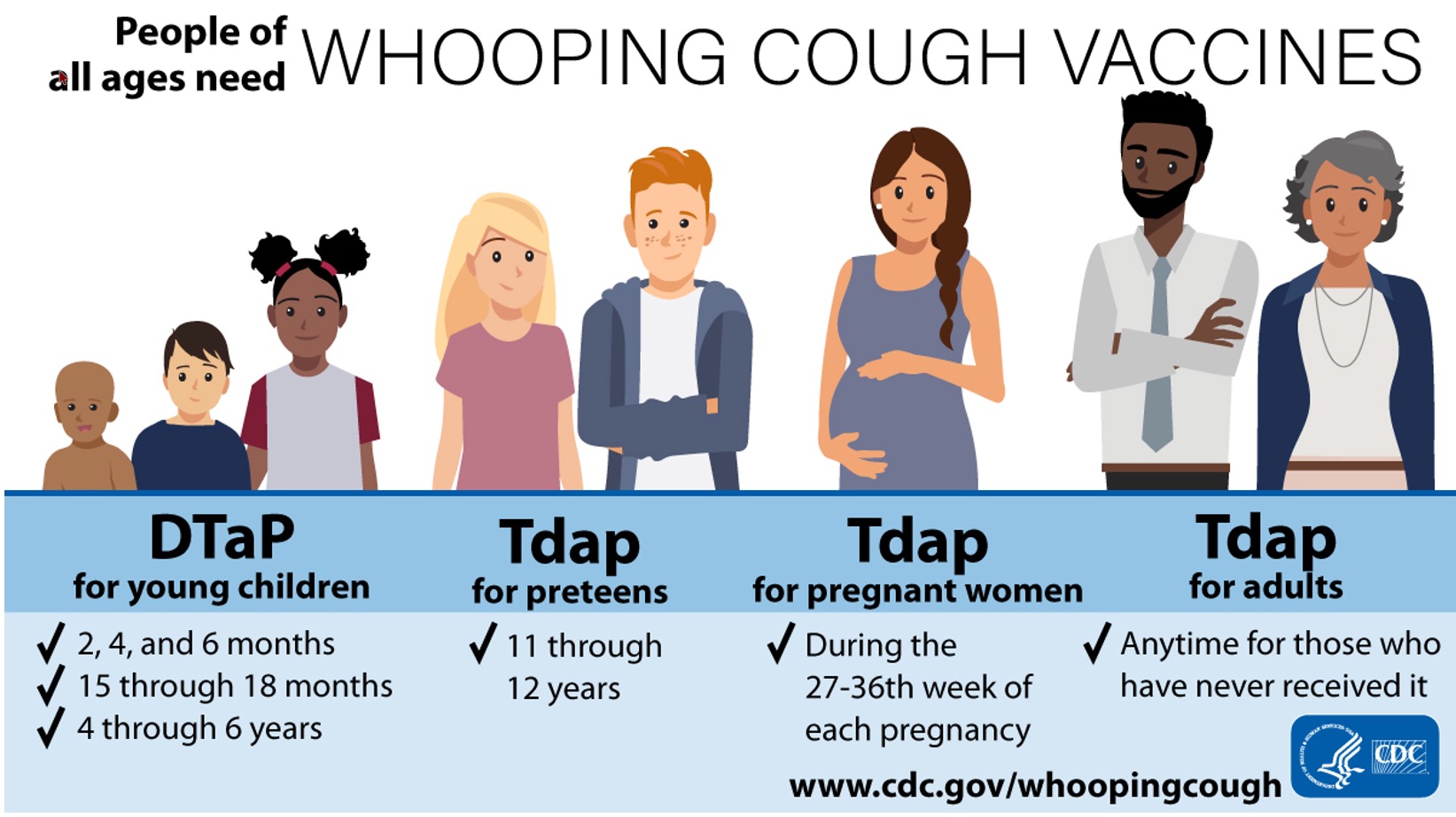Whooping cough, also known as pertussis, is a very contagious respiratory illness caused by a type of bacteria called Bordetella pertussis. The disease is only found in humans and spreads from person to person through aerosolized droplets from coughing or sneezing.
It usually takes 5 to 10 days for symptoms to appear after exposure to the bacteria that causes whooping cough. Early on, pertussis may appear similar to a common cold, but unlike a cold, coughing fits can continue for weeks or months. Healthcare providers often do not suspect or diagnose pertussis until more severe symptoms appear.
Early symptoms can last for 1 to 2 weeks and usually include:
- Runny or stuffed-up nose
- Low-grade fever (less than 100.4°F)
- Mild, occasional cough
- Babies may struggle to breathe
Many babies with pertussis do not cough at all. Instead, they may have apnea (life-threatening pauses in breathing). The apnea may cause cyanosis (to turn blue) or they may struggle to breathe.
For some babies, whooping cough may seem like a common cold for the entire illness, not just at the beginning.
One to 2 weeks after the first symptoms start, people may develop paroxysms, known as coughing fits. These coughing fits usually last 1 to 6 weeks but can last for up to 10 weeks. The cough generally gets worse and becomes more common as the illness continues.
Coughing fits can cause people to:
- Make a high-pitched “whoop” when they inhale after a coughing fit
- Vomit during or after coughing fits
- Feel very tired after the fit, but usually seem well in-between fits
- Have difficulty sleeping at night
- Struggle to breathe
- Fracture (break) a rib
People can spread the bacteria from the start of symptoms and for at least 2 weeks after coughing begins. Infected people are most contagious during this time, up to about 2 weeks after the cough begins. Please talk to a healthcare provider if you are concerned you have pertussis or have been in contact with someone who has been diagnosed with pertussis. Taking antibiotics early in the illness may shorten the amount of time someone is contagious.

Since pertussis affects people of all ages, the best way to prevent pertussis is to get vaccinated. Talk to a healthcare provider if you have questions about pertussis vaccination.

For additional information on pertussis, please visit: